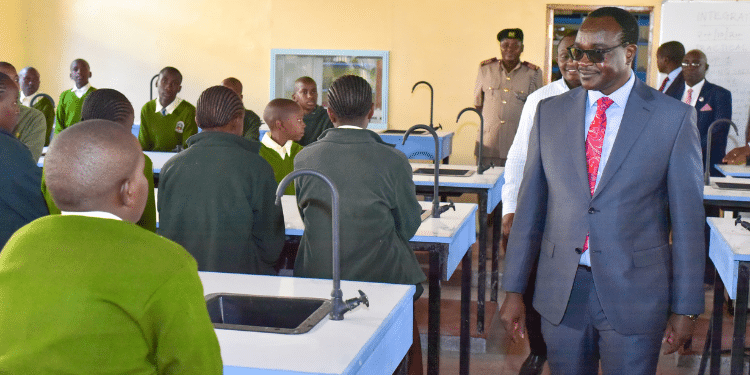The National Assembly on Thursday, June 19, passed the Finance Bill 2025, which now awaits President William Ruto’s assent. The Finance Bill provides the legal framework for the government to raise revenue to fund the 2025/26 budget.
Several contentious proposals in the Finance Bill 2025, such as granting the Kenya Revenue Authority (KRA) access to personal data and the introduction of new taxes, were dropped or clarified after public feedback.
The budget is heavy on development, with major investments directed towards infrastructure, education, healthcare, housing, and support for MSMEs — sectors vital for empowering households and fostering inclusive economic growth.
Education takes the lion’s share with approximately Ksh700 billion, a reflection of the government’s commitment to human capital development.
The allocation will fund teachers’ salaries and the recruitment of interns, support free basic education, TVET training, the junior secondary transition, capitation, school feeding, and exam subsidies.
The focus is to build long‑term social resilience, close the inequality gap, and boost literacy, skills, and employability, especially for young people.
More students will be enrolled through free basic education, reducing the financial burden on parents, while job opportunities for teachers and enhanced technical training in TVET institutions will benefit the youth.
Also Read: Finance Committee Rejects Proposal to Grant KRA Access to Personal Data
2025/2026 budget allocations
Infrastructure and transport have been allocated over Ksh318 billion for road construction, rural electrification, last‑mile connectivity, digital infrastructure such as fibre and Wi‑Fi, and the establishment of market spaces.
These projects are aimed at enhancing regional integration and rural‑urban access, supporting industrial corridors, and facilitating wider economic participation.
Improved roads and transportation will save time and reduce travel costs for traders and workers, rural electrification will boost security and productivity, and access to the internet will expand digital job and learning opportunities.
In health, Ksh133–141 billion has been set aside to drive Universal Health Coverage (UHC).
The money will be used for county health services, supporting the transition from NHIF to the Social Health Insurance Fund (SHIF), bolstering disease surveillance, establishing cancer centers, and employing community health promoters.
This shift aims to move from focusing on cures to preventive interventions, making quality healthcare more accessible — especially in rural areas — reducing out‑of‑pocket medical expenses, strengthening services in public hospitals, and improving maternal and childcare.
Affordable Housing Programme
The 2025/26 budget also benefits the housing and urban development with an allocation of Ksh90–128 billion to scale up the Affordable Housing Programme, support slum upgrading, urban infrastructure, police and prison staff housing, and the construction of footbridges.
This is aimed at supporting the Bottom‑Up Economic Transformation Agenda (BETA), driving urban renewal, creating jobs in the construction sector, and providing decent housing for low‑income earners.
The initiative will open access to affordable housing for informal workers and youth, boost artisanal and masonry jobs, and improve urban safety and sanitation.
In the security sector, Ksh279–465 billion has been allocated for the National Police Service, a critical investment at a time when global geopolitical tensions continue to rise.
The funds will be used to modernize the service through new equipment, enhanced intelligence, and improved surveillance technologies, including cybercrime units, police recruitment, and improved staff welfare.
Also Read: Billions Every County Will Receive in the 2025/2026 Budget [LIST]
This is expected to bolster public safety, deepen security services, and enable faster emergency responses, while providing opportunities for youth to join disciplined services.
Agriculture sector
Agriculture and food security have been allocated Ksh47–86 billion, focusing on fertilizer subsidies, irrigation expansion, agro‑processing, value‑chain support, and the promotion of livestock, dairy, fisheries, and food resilience.
These measures seek to uplift rural communities, create jobs, and tackle food insecurity across the country.
The initiative will reduce the cost of farming inputs such as fertilizer, raise yields for smallholder farmers, create more jobs across agricultural value chains, and improve food availability and affordability throughout Kenya.
Social protection also receives approximately Ksh41 billion, focusing on cash transfers for the elderly, orphans, persons with disabilities, and enterprise funds for youth and women.
The allocation aims to foster equity and resilience by providing direct financial support to vulnerable groups, facilitating access to business start‑up capital, and promoting dignity and stability for those most in need.
Allocations for digital economy, manufacturing and counties
The digital economy receives a significant boost, with up to Ksh141 billion dedicated to expanding internet connectivity, digital public services, the development of Konza Technopolis, and e‑government platforms.
This investment is set to deepen digital inclusion and position Kenya as a tech‑driven economy, offering affordable internet access for entrepreneurs and the youth, expanding access to online government services, and creating digital jobs in areas like content creation, freelancing, and ICT.
Manufacturing and MSMEs have been allocated between Ksh12–18 billion to support agro‑industrial parks, the Hustler Fund, youth enterprise, and small and medium‑sized businesses.
These measures seek to drive local value addition, reduce dependence on imports, and create jobs within industries across the country.
Finally, county governments have been granted Ksh405 billion to support devolved service delivery.
The funds will enable localized planning and grassroots development across sectors such as health, agriculture, roads, and water, ensuring improved access to essential services and infrastructure for rural and underserved communities.
Follow our WhatsApp Channel and X Account for real-time news updates.
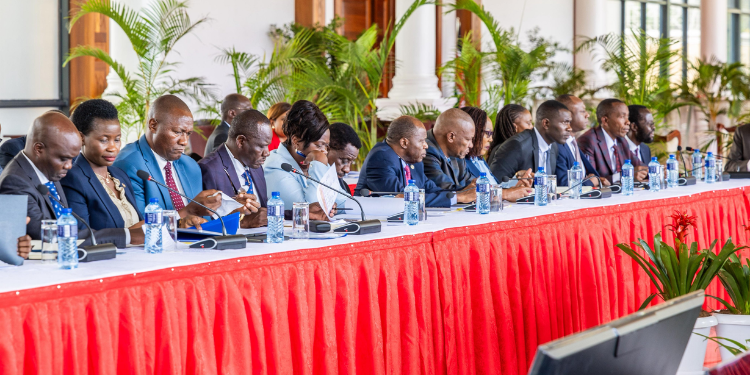

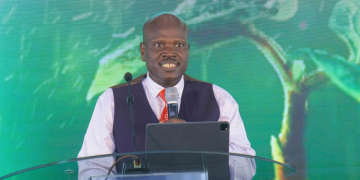

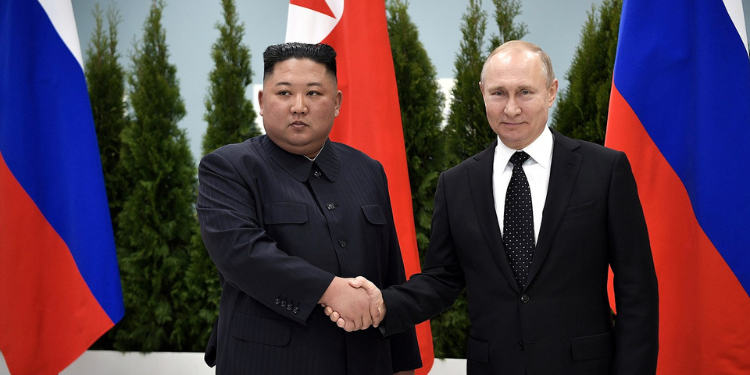


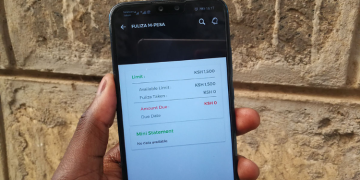












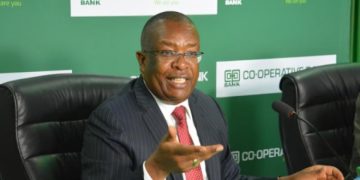
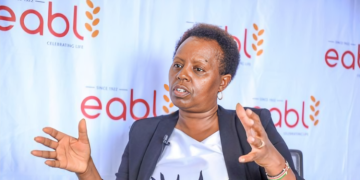
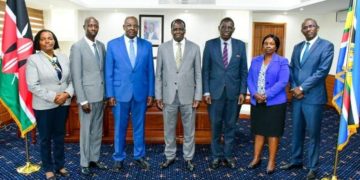
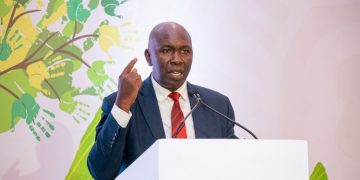































![Senator Allan Chesang And Chanelle Kittony Wed In A Colourful Ceremony [Photos] Trans Nzoia Senator Allan Chesang With Channelle Kittony/Oscar Sudi]( https://thekenyatimescdn-ese7d3e7ghdnbfa9.z01.azurefd.net/prodimages/uploads/2025/11/Trans-Nzoia-Senator-Allan-Chesang-with-Channelle-KittonyOscar-Sudi-360x180.png)
















